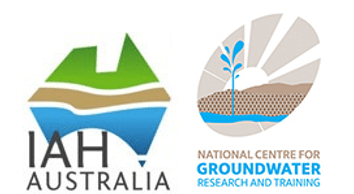| |
 2019 IAH / NCGRT Distinguished Lecture Series – Townsville
2019 IAH / NCGRT Distinguished Lecture Series – TownsvillePRESENTED BY: Dr Justine Lacey, Principal Research Scientist & Director of CSIRO’s Responsible Innovation Initiative
Thursday 10th Oct, 4:00 – 5:00 PM
Social License to Operate: a critical issue in Australia and around the world, especially with mining and coal seam gas developments.
Social licence to operate (SLO) is a term that has emerged in Australia and around the world over the last two decades. For the most part, SLO has been popularised within the mining and extractive industries where it has been used to describe the broad approval or acceptance of a resource development activity that is afforded by local communities or other stakeholders, who can affect the profitability of that activity. However, SLO importantly points to the changing nature of societal expectations that have influenced the way in which the development, management and use of natural resources is now being undertaken.
Communities are increasingly demanding more involvement in decision-making around the use of natural resources in all forms. They have expectations of receiving a greater share of the benefits associated with the development of these resources, and they require assurances that those responsible for these activities are being appropriately regulated. In the context of groundwater management in Australia, an understanding of SLO is useful for two reasons. First, it provides an opportunity to more critically examine the nature of the impacts of the mining and extractives industries on groundwater resources and to explore how we make decisions about competing resource use needs in the landscape within a broader social context. Second, SLO also allows us to more closely examine societal expectations of groundwater management in Australia.
For over a decade, the CSIRO has undertaken applied research to measure and model SLO in the mining and extractive industries, and this work has been extended to a range of other sectors including forestry, agriculture, and environmental conservation. This research has collectively demonstrated how the roles of trust, fairness and governance underpin the development of more sustainable, trust-based relationships between resource developers and society in relation to responsible resource management. This lecture will explore the continued appeal of the term SLO to describe and capture the nature of those social interactions and expectations across a range of resource development and use settings, provide a clear definition of SLO based on over a decade of applied research conducted by the CSIRO, and highlight how this concept might be useful in relation to the management of groundwater resources at local and national scales.
Dr Justine Lacey
Dr Justine Lacey is a Principal Research Scientist and Director of CSIRO’s Responsible Innovation Initiative. The Responsible Innovation Initiative is a $5.75m research program examining the interface between science, technology innovation and the associated ethical, social and legal consequences of new and disruptive science and technologies. Justine is a philosopher and she holds a PhD in the field of ethics and natural resource management. Her recent research has focused on building our understanding of the ‘social licence to operate’, and since 2011, she has worked with colleagues at the CSIRO on identifying the drivers of societal acceptance of and trust in a range of contested resource development industries and contexts. This has included examining how social licence, which predominantly emerged in the mining and minerals sector, has subsequently been adopted in a range of other contexts including forestry, agriculture, non-renewable energy production, and now increasingly in conservation and environmental management contexts. She has also researched and published on the role of ethics and trust in science and how and to what ends science is used in society.
Click here to register for event